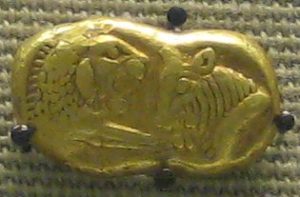Bitcoins Being Watched and Tracked by World Governments
Even though it is an old, old thing, the rudimentary economics of the exchange of currency for goods and services is now engulfing all people everywhere into the world economy. All banks and all governments, and every person is being kicked into a single realm of economy like it or not. Bitcoins and virtual currencies are affecting business and soon will be affecting the personal lives, directly and indirectly, of people all over the globe.
Virtual currencies, that are not minted by governments or sanctioned by national banks, that never have to leave the internet, enter banks or exchange hands, are subject to minimal regulation. Such accounts are not insured by the Federal Deposit Insurance Corporation. Taxation becomes a problem on federal and local levels. Governments around the world are at a loss on how to handle this Internet phenomenon. All sorts of questions arise. Will hackiing become the new counterfeiting? How will it affect government revenues? Where should we save and invest money are just a few quandaries that will surely demand government intervention.
Since bitcoins, et al, sit on an international platform with no single monitor with real authority to regulate them, how can the experiments in new international banking systems be regulated as they will need to be?
Nevada and Maryland have joined the parade of states warning against frivolous or unprotected use of the newest form of currency dubbed ‘cryptocurrency’.
“The value of virtual currencies is highly volatile and the concept behind the currency is difficult to understand even for sophisticated financial experts,” Andrea Seidt, president of the North American Securities Administrators Association (NASAA), said in an official statement issued by NASAA, which is a group of authorized state securities regulators.
But this is nothing new to consumers from the beginning of the first cockleshell that was exchanged for a cow or the first cow that was traded for a bag of beans.
The legendary ruler of the kingdom of Lydia, Croesus ,is duly credited as the first to mint and regulate gold coins. It was hard for people to understand how the system worked, much less how to calculate and stabilize their worth or guarantee their value, let alone their rate of exchange. So bitcoins and such, can be expected to act the same as currency has since it was first invented.

For all the efforts to assure the stability of currency and exchange rates since the first coin minted by King Croesus, stability is the furthest thing that has happened. Drops, declines, inflations, deflations, manipulations and Ponzi-schemes have conspired and colluded due to those effervescent ingredients in people called greed, corruption and selfishness. Croesus, a wise forger of a scattered people into a nation of producers of goods was overcome by overconfidence in riches and ended up a slave to Cyrus the Great, the ruler of the world empire of Persia.
Jesus deftly stated this maxim for a happy life; “You cannot serve God and mammon. ” Coin currency was the form that sold the wise King Croesus into slavery.
NASAA has been looking into a few dozen charges from U.S. accounts that have been led to withdraw their money from bitcoin exchanges. Most complaints concerned their accounts with Mt. Gox, once the world’s biggest bitcoin exchange until it filed for bankruptcy protection in Japan this past March, claiming it had lost more than a third of a billion dollars of the virtual coins by way of computer hackers. How that worked is anybody’s guess, but that’s the way the currency game always goes. Courts in Japan, Canada and the U.S. are involved in the litigation to have Mt. Gox, a Japanese group, to sell the bitcoin co. to those who lost their money for less than 500 bucks.
“This is the customers’ best option and the only chance they have for full restitution,” said the Edelson law firm handling the case in the U.S. case.
- The Seduction - January 17, 2021
- The Science of Prophistory - January 17, 2021
- The Road To Philadelphia - January 17, 2021




